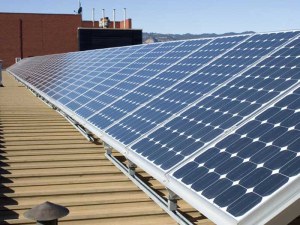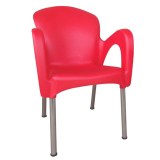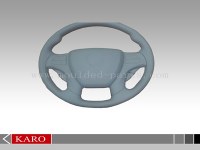The aluminium frames around the solar panel is an important but often ignored component of a solar panel. Aluminium profile solar panel frame and mounting bracket are normally used to seal and fix solar battery components. As one of the important industrial aluminium profiles produced by Otalum, our solar aluminium frame can provide great structural stability for the overall combination of glass, EVA encapsulates, the cell and the back sheet, increasing support and the battery service life.
Otalum stocks various aluminum extrusion solar panel frames, available in a range of finishes. If the existing products are not suitable for your needs, we can also assist you in designing your own aluminium profiles for solar panel mounting and provide you with die trails for your reference.
All extrusions can be supplied as cut, drilled or machined in line with customer specifications. As a professional aluminium extrusions supplier, Otalum operates the latest CNC drilling and machining centres which provide accurately machined, cost-efficient parts on short cycle-times. When ordering, please specify alloy, temper, length, quantity, surface finish, end-use and any special instructions regarding tolerance, delivery, packing and certification. It couldn't be better if you can share with us your designed drawings.
Please contact us to get more information about aluminium profile for solar panels in Otalum.
Packing and Delivery of Aluminum Profile For Solar Panel
Packing of Aluminum Profile For Solar Panel:
A protective film will stuck on profile's visible surface, and a heat shrink film or craft paper will cover the outside. Customized packing of aluminum profile for solar panel is also available.
Delivery of Aluminum Profile For Solar Panel:
1. Die development of Aluminum Profile For Solar Panel: 15-25 days after payment is received and drawings are confirmed.
2. Production time of Aluminum Profile For Solar Panel: 25-30days after the deposit is received and samples are confirmed.
Aluminum VS Steel Profile For Solar Panel Frame
Traditionally, steel has been the metal of choice for large commercial projects, and for good reason.
Steel is abundant and easy to purchase. Steel is very suitable for static load bearings and has a high modulus of elasticity and excellent fatigue strength. The mechanical properties and forming properties of steel are well known, so the design of structural components (such as frames, trusses and I-beams) is relatively simple.
However, the use of steel also has obvious disadvantages. On the one hand, it is heavy and must be transported and installed in remote areas at high energy costs. Compared with steel profiles, aluminum profile panel is light and energy-saving.
Manufacturing longer steel profiles requires welding parts to join together, which increases manufacturing costs. Of course, steel is prone to corrosion, so the surface must be passivated, painted or powder coated-these are not permanent solutions for longevity.
Fortunately, the use of aluminum profiles has many advantages that engineers and product developers may not be aware of. To take advantage of these advantages, engineers should first pay attention to the exact conditions under which the structure must be executed.
The Benefits of Aluminum Extrusion Profiles for Solar Energy
The innovation of aluminum extrusion technology provides higher stability for the solar panels on site. In order to maximize efficiency, solar panels need to be positioned with extremely high precision. Even if the position is slightly shifted, the output potential of the power supply can be reduced by several percentage points.
Aluminum extruded profiles can be used to create integrated frames (including frames, brackets and connectors) for solar panels in various situations. Compared with other metal options, aluminum products have many advantages:
Frames and supports made of aluminum extrusion are lighter than other metals, so Aluminum solar panel frame is easier to transport and assemble in remote areas where large solar power plants are common. This lightweight function can also be used for rooftop solar installations because the architectural specifications of these buildings have a limited capacity to support the additional weight of the panels and underlying structures.
Aluminum is corrosion resistant, which adds to the weather resistance advantages of these solar panel architectures.
The malleability of aluminum allows flexible design of solar panel supports and frames. Extruded aluminum tubes can be connected at atypical and precise angles while requiring fewer parts and connections. This provides the necessary precision for the alignment of solar panels to achieve maximum energy output.
If you need any kinds of extrusion profile, please contact us, as a professional aluminum profile supplier, Otalum is willing to offer you high quality products.
Location : Room 3/22, COFCO Group Center, Baoan District, Shenzhen, Guangdong Province, China, 518000 shenzhen,
Contact : Xie Oscar , 86 13613060162







